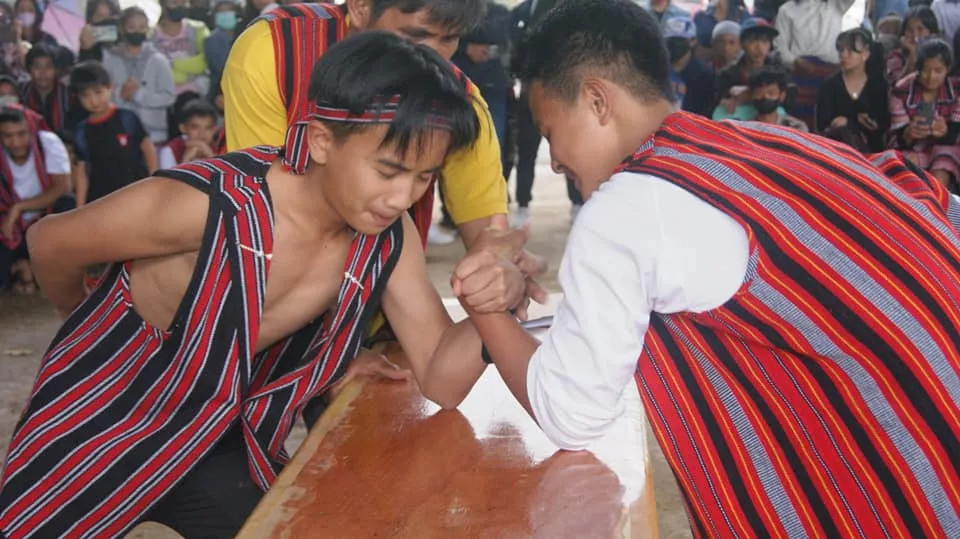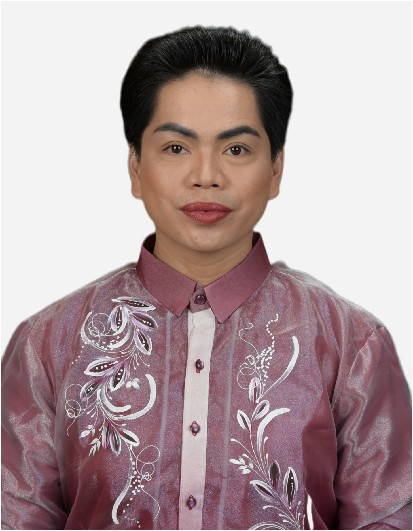
From Margins to Mainstream: Bridging advocacy and action for Indigenous Peoples

Disclaimer: Opinions expressed in this commentary are those of the authors and do not necessarily represent the institutional position of International IDEA, its Board of Advisers or its Council of Member States.

Indigenous communities across Asia, including my own in Mankayan, Philippines, face persistent challenges: shrinking civic spaces, environmental degradation, and systemic exclusion. These issues are not abstract—they are deeply personal realities for many Indigenous peoples striving to preserve their culture and assert their rights. As a member of the Kankanaey ethnolinguistic group, an educator, and an advocate for Indigenous youth’s rights, I have seen firsthand how these struggles manifest in my community.
In the course of my advocacy work, it’s become clear how interconnected the challenges of governance, representation, and environmental justice are for Indigenous peoples. I believe that knowledge shared could translate into meaningful initiatives for my community in Mankayan.
One of the major challenges Indigenous communities face is navigating overlapping and, at times, contradictory laws governing land rights. In the Philippines, the National Commission on Indigenous Peoples (NCIP) and the Department of Environment and Natural Resources (DENR) both issue certifications concerning land tenure—NCIP through the Certificate of Ancestral Domain Title (CADT) and DENR through the Mineral Production Sharing Agreement (MPSA). This legal redundancy often leads to conflicts, delays, and the weakening of Indigenous control over ancestral lands.
Beyond legal struggles, economic pressures have forced many Kankanaey traditions into a delicate balancing act. Some of our cultural practices are now being commercialized, often in ways that strip them of their essence. While I do not oppose commercialization outright, I believe it must be done with a deep understanding of the cultural significance behind these traditions. Without this education, what is meant to be a sacred or communal practice risks becoming a spectacle for profit, detaching it from its original intent.
Reforming Free, Prior and Informed Consent
Another crucial governance issue is the Free, Prior, and Informed Consent (FPIC) process. While it is a necessary safeguard to protect Indigenous rights, its implementation in the Philippines presents significant challenges. The process is notoriously lengthy and costly, making it difficult for communities to meaningfully engage.
One striking example is how FPIC applies even to academic research. As a Kankanaey conducting ethnographic research within my own community, I am still required to undergo the same expensive and bureaucratic FPIC process as an outsider would. While I deeply respect the principle of FPIC in preserving Indigenous culture, its prohibitive costs and complex requirements deter much-needed research on our traditions, leading to gaps in cultural documentation. If Indigenous scholars themselves struggle to study and archive their own heritage, who will?
This is why I strongly advocate for FPIC reform—not its removal, but a streamlined process that considers the purpose of engagement. Research, particularly by Indigenous academics, should not be subjected to the same exhaustive process as commercial enterprises. There must be a distinction between projects that seek to exploit Indigenous lands and those that seek to protect and document Indigenous knowledge.
Recognizing these challenges, I have dedicated much of my work to pushing for policies that enhance Indigenous autonomy. My participation in drafting the Constitution and By-Laws of the Guinaoang Community Indigenous Peoples Organization (GUICIPO) is one such effort. This document is more than a legal framework—it is a testament to our collective commitment to self-determination, transparency, and community-driven governance.
Another tangible application of my advocacy is my involvement in the FPIC process for the renewal of the MPSA of Crescent Mining and Development Corporation. By ensuring that transparency and community participation were at the forefront of discussions, we successfully safeguarded the rights of the Kankanaey people while upholding environmental and cultural integrity.
One of the recurring themes of the Bangkok roundtable in August 2024 was the urgent need to reclaim civic spaces for Indigenous peoples. The Kankanaey community’s voices must not be confined to informal gatherings—they must be amplified in institutional decision-making platforms. To address this, I have initiated youth leadership workshops that equip young Kankanaey individuals with the skills to navigate governance structures while staying rooted in their cultural identity.
Moreover, Indigenous women’s voices remain underrepresented in governance and leadership. I have worked to change this by facilitating discussions that highlight the role of Indigenous women in cultural preservation and decision-making. Their wisdom and leadership are crucial to ensuring that traditional knowledge is not only protected but also passed down to future generations.
The conference also reshaped my approach as a researcher. My current studies integrate participatory methodologies, ensuring that Indigenous voices are central to the research process rather than merely being subjects of study. For instance, my research on the environmental impact of mining in Mankayan is grounded in the strategies I learned in Bangkok—prioritizing Indigenous narratives, promoting environmental justice, and identifying solutions that align with our community’s aspirations.
Action outside of academia
Yet, beyond academia, I continually ask myself: How do my actions uphold the principles of empowerment, equity, and respect for Indigenous identities? Reflexivity is crucial in advocacy. It ensures that our initiatives remain responsive to the evolving needs of the community rather than being imposed from the outside.
The Bangkok conference reinforced that true advocacy is not just about articulating demands—it is about fostering tangible change. It also underscored the necessity of collaboration, whether with elders, government institutions, or international networks. This synergy between local action and global solidarity is key to overcoming systemic barriers.
The challenges Indigenous communities face—shrinking civic spaces, economic pressures, and governance hurdles—are daunting, but they are not insurmountable. By leveraging our collective strengths, Indigenous peoples across Asia can reclaim their narratives and secure their rightful place in governance.
For Mankayan, this means continuing to build spaces for dialogue, empowering youth and women, and integrating Indigenous governance systems into broader frameworks. It means harnessing traditional knowledge for environmental advocacy and ensuring that decision-making processes honor cultural integrity.
Above all, advocacy is not a one-time effort—it is an iterative process. It requires constant reflection, adaptation, and the courage to challenge unjust systems while preserving our identity. I am convinced that Indigenous voices, especially those of the Kankanaey people, must not just be heard, but valued.
Through continued collaboration, reflexivity, and action, we can ensure that Indigenous communities move from the margins to the mainstream, shaping a future that respects our heritage while embracing inclusive progress.
This article is the third in a series of guest pieces from Indigenous advocates across Asia and the Pacific. Follow International IDEA’s #DemocracyForAll campaign throughout 2025. Read the first and second article.





